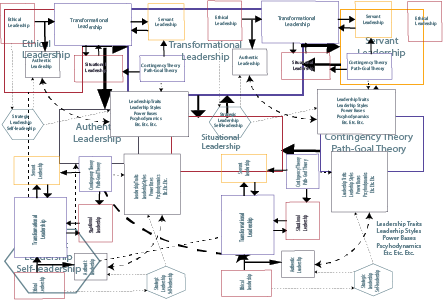
Wouldn’t it be nice if people could agree on which leadership model is the best or what leadership traits are the most important? Instead we have 7 habits, 5 levels, 21 laws, situational, transformational, servant, and seemingly, a myriad of competing leadership approaches. What does the evidence say is the best one? For years, researchers from Bass (2008) to Northouse (2021) have provided summaries on a vast variety of leadership theories and practices along with supporting evidence for each. In answer to this question, most authors would likely say, “it depends”.
The truth is, there is no one best leadership model and the evidence supporting any of the theories is weaker than one might think – but for good reasons. The best approach will be different in different environmental contexts such as:
• Employee needs, skills, motivations, and desires
• Organizational culture
• The demands of the work itself
Because the context of work is always changing and may be different for one leader versus another, empirical studies have not been able to clearly point to any one best theory. What might have worked five years ago may not be successful now. What might be effective in a slow-growth, mature, and highly competent department, might not be effective in a dynamic, entrepreneurial environment of the same company.
The best approach is likely to be one that adaptively integrates emphasis from various models as needed in response to the changing environment.
There are some approaches however, that do have a more universal application and better supporting evidence than others. Transformational leadership for example, is one that integrates concepts from a number of other theories including situational leadership and charismatic leadership. And there are some leadership concepts such as ethical leadership that are always appropriate, no matter what the situation.
So what does this mean with respect to our search for the best leadership development opportunity? It means that you should learn more than just one approach.
References
Northouse, P. G. (2021). Leadership: Theory and practice (9th ed.). Thousand Oaks, CA: Sage Publications. ISBN: 1544397569.
Bass, B. M. (2008). The Bass handbook of leadership: Theory, research, and managerial applications (4th ed.). New York: Free Press. ISBN: 9780743215527.
